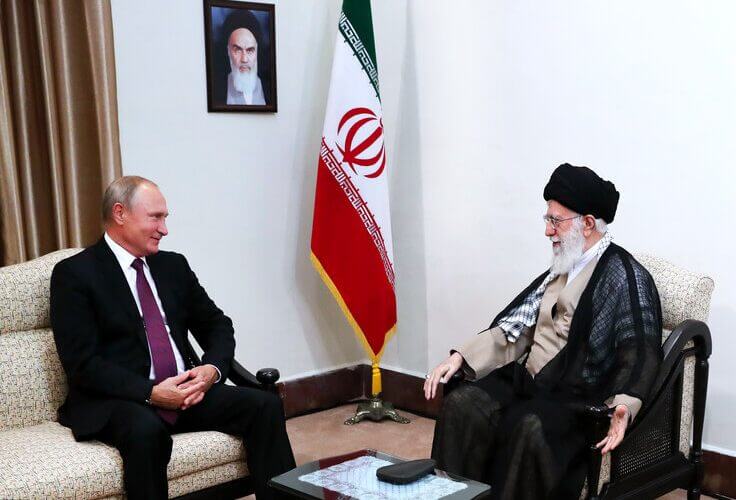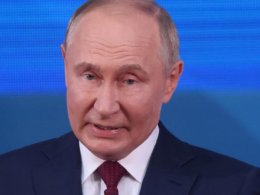Trade between Russia and Iran has topped $4.5 billion as the two regimes integrate their economies to create a network capable of evading U.S. and international sanctions.
Russia is making major investments in Iran's ports, nuclear infrastructure, energy sector, and military machine. Iran's deputy roads and urban development minister, Shahriar Afandizadeh, this week valued this trade at $4.5 billion.
Tehran and Moscow also recently inked an economic deal to carry some 10 million tons of goods from Russia into Iran through a land corridor. This deal "puts emphasis on transit in addition to imports and exports," according to a summary of Afandizadeh's comments published Wednesday in the country’s state-controlled press. This relationship helps to keep Moscow afloat as international sanctions cripple Russia's economy as a result of its war in Ukraine.
Members of Congress and regional experts have warned for some time that Iran and Russia are ratcheting up relations to combat Western sanctions and boost each other's militaries. With the Biden administration's diplomacy aimed at securing a revamped version of the 2015 nuclear accord, warnings have swirled on Capitol Hill that a new deal will create a "sanctions evasion hub for Vladimir Putin based in Iran," the Washington Free Beacon reported. Iran, Russia, and China also are slated to hold a series of major war drills in Latin America next month, highlighting the emphasis these countries place on combatting the United States in its own backyard.
Iran also recently announced that it will boost exports to Russia, including "construction materials," with an estimated worth of $3 billion.
The total amount of trade between Iran and Russia last year totaled around $2.5 billion, signaling that in the year since, trade between the countries has increased significantly.
Russian companies also stand to cash in on a new nuclear deal with Iran. Several of Russia's top state-controlled nuclear companies would receive billions of dollars in revenue once sanctions are waived as part of a new agreement.
Iran has reportedly already paid Russia more than $500 million for its work building out Iran's nuclear plants. If a nuclear deal is inked, Iran and Russia will be free to continue building nuclear sites.
Sanctioned Russia ships also have been caught in recent months ferrying illicit Iranian oil, providing both regimes with financial lifelines. At least two Russian tankers sanctioned as part of U.S. efforts to isolate Russian businesses were seen carrying illicit Iranian oil from various ports. This type of sanctions-busting scheme is also employed between Iran and China.
Behnam Ben Taleblu, an Iran expert at the Foundation for Defense of Democracies think tank, said that Russia is learning sanctions evasion techniques from its ally Iran.
"Russia, which is now under increasing sanctions due to its invasion of Ukraine, stands to learn a lot from the Islamic Republic in the sanctions busting space," he said. "Therefore, the value of Russo-Iranian collaboration will not just be quantitative as represented by the volume or value of trade, but qualitative, namely the industries as well as what contacts are made and experiences gained."
"The longer Russia's invasion and war against Ukraine continues, the deeper its embrace of actors like the Islamic Republic, who are used to operating outside or abusing formal financial networks, will be," Ben Taleblu said.










